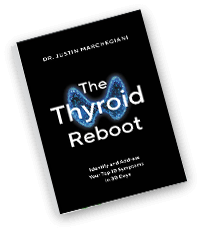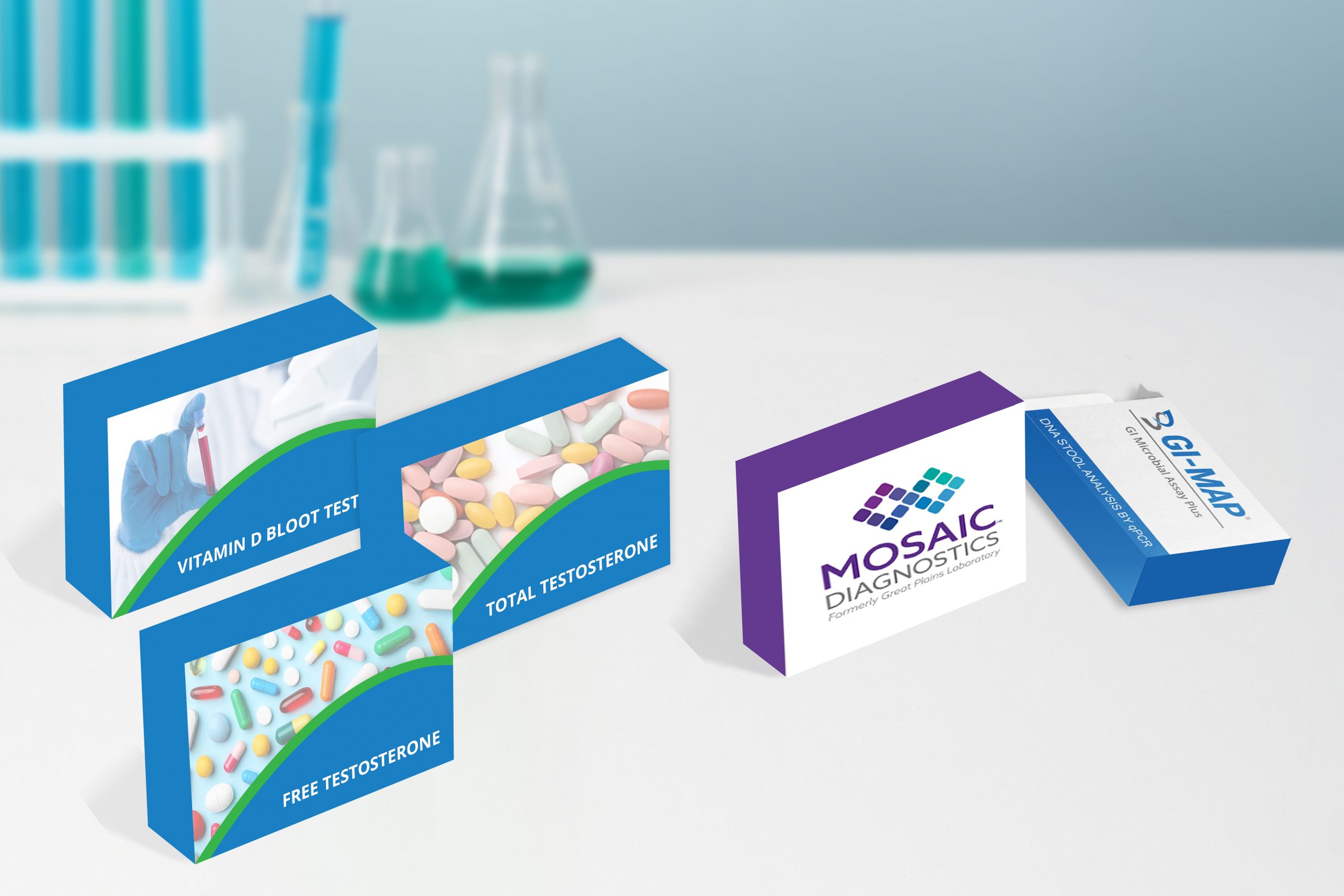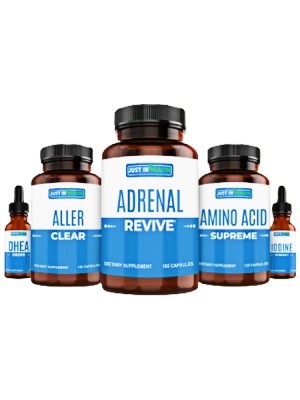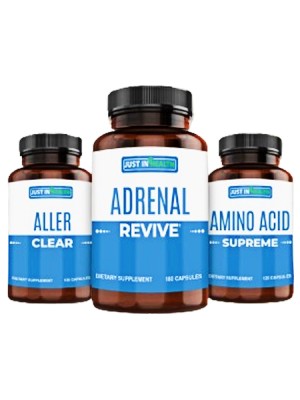Description
Santa Cruz Medicinals Essential Lab Pack – Comprehensive Lab Test Overview
GI-MAP (GI Microbial Assay Plus)
The GI-MAP® (Microbial Assay Plus) is a comprehensive stool test that relies on quantitative polymerase chain reaction (qPCR) technology to detect parasites, bacteria, H. pylori, fungi, and more by targeting the specific DNA of the organisms tested.
The GI-MAP’s quantitative PCR technology can reveal underlying causes of irritable bowel syndrome (IBS), autoimmune diseases, skin conditions, and more. Get powerful results on H. pylori and the virulence factors associated with it. GI-MAP results can help you optimize health in patients of all ages.
The GI-MAP's accuracy and reliability allow practitioners to create personalized treatment protocols to address gut dysfunction based on which infections are urgent, which areas of the gut are already optimized, and which areas should be addressed after an infection is resolved.
Additionally, the quantification offers a remarkable ability to see how treatment modalities work because a retest after treatment can show whether a parasite has resolved, dysbiosis has improved, and more.
Who Should Have the GI-MAP Comprehensive Stool Analysis Done?
Almost every patient can benefit from a GI-MAP gut health assessment. Some patients are looking to achieve optimal health, while other patients have been chronically ill and frustrated without a diagnosis for years.
Some conditions that warrant testing are:
- Autoimmune diseases
- IBS/IBD
- Digestive complaints, diarrhea, or constipation
- Brain fog
- Skin problems, like acne and psoriasis
- Mood disorders, depression, and anxiety
- Diabetes and weight loss issues
Specimen Type: Single Stool Sample
Turnaround Time: 1-2 weeks
Organic Acids Test (OAT)
A Nutritional and Metabolic Snapshot
Organic acids are products of the body’s metabolic pathways. Evaluation of these downstream metabolites from various metabolic pathways provides insight into important areas of gut health, mitochondrial dysfunction, neurotransmitter status, indicators of detoxification macronutrient breakdown, and nutritional status. This makes organic acid testing a valuable tool to assess the functional need for essential nutrients, diet modification, antioxidant protection, detoxification, and other therapies.
The Organic Acids Test (OAT) provides a comprehensive nutritional and metabolic snapshot of an individual’s health. The OAT measures 76 organic acids from one easy-to-collect urine sample.
Why Run an Organic Acids Test (OAT)?
The Organic Acids Test (OAT) is a simple and efficient way to assess several metabolic pathways providing insight into imbalances and nutrient needs. The OAT can provide insight into a wide range of conditions, making it valuable for individuals who are experiencing complex chronic conditions.
The OAT test report is organized into clinically useful categories including:
- Intestinal Microbial Overgrowth markers evaluate candida activity, clostridia bacteria toxins, potential mold exposure, and imbalance in the gut microflora.
- Oxalate Metabolites provide insight into oxalate levels being generated by organisms within the system or via dietary contributions.
- Glycolytic Cycle Metabolites and Mitochondrial Markers (Krebs Cycle and Amino Acid Metabolites) are evaluated for metabolic efficiency (e.g., use of glucose and amino acids for energy generation) and mitochondrial dysfunction.
- Neurotransmitter Metabolites evaluate for phenylalanine, tyrosine, and tryptophan metabolism which are linked to neurotransmitter status and quinolinic acid production.
- Pyrimidine Metabolites & Ketone and Fatty Acid Oxidation markers give insight into folate status and cellular turnover, as well as mitochondrial utilization of fatty acids for energy production.
- Nutritional Markers provide insight into the sufficiency of essential vitamins, antioxidants, and metabolic pathway co-factors.
- Indicators of Detoxification assess for the presence of oxidative stress via markers of glutathione sufficiency and methylation versus transsulfuration function.
- Amino Acid Metabolites may suggest functional nutrient needs or be reflective of genetic metabolic dysfunction if a consistently, persistently elevated level of a particular analyte is noted.
- The Mineral Metabolism marker provides insight into the dietary intake of phosphate and can give insights into Vitamin D levels.
Specimen Type: Urine
Turnaround Time: 1-2 weeks
Total Testosterone
The Testosterone Total test is a laboratory test that measures the total amount of testosterone in the bloodstream. Testosterone is a hormone primarily produced in the testes in males and the ovaries in females, although it is present in both sexes. It plays a vital role in the development and maintenance of sexual characteristics, muscle mass, bone density, and overall well-being.
When is a Testosterone Total test ordered?
A Testosterone Total test may be ordered in the following situations:
- Evaluation of Symptoms: The test may be ordered when individuals, regardless of gender, present with symptoms associated with testosterone deficiency or excess. Common symptoms in males include low libido, erectile dysfunction, fatigue, depression, and decreased muscle mass. In females, symptoms may include irregular menstrual cycles, infertility, and signs of virilization (excessive facial or body hair).
- Assessment of Hormonal Imbalances: The test can help diagnose and monitor conditions related to hormone imbalances, such as hypogonadism (low testosterone production), hypergonadism (excess testosterone production), or polycystic ovary syndrome (PCOS) in females.
- Monitoring Hormone Replacement Therapy: For individuals receiving testosterone replacement therapy or hormonal interventions, periodic testing of testosterone levels helps ensure appropriate dosing and monitor treatment effectiveness.
What does a Testosterone Total blood test check for?
In men, testosterone is the primary sex hormone. It's in charge of a man's physical appearance. Although it is thought to be a “masculine” sex hormone, it is found in both men's and women's blood. This test determines the amount of testosterone in a person's blood.
Testosterone is primarily produced in the male testicles by unique endocrine tissue called Leydig cells. It's also made by the adrenal glands in both males and females, as well as the ovaries in females in modest amounts.
In males, testosterone promotes the formation of secondary sex characteristics such as penis size, body hair growth, muscle development, and a deeper voice. It is abundant in males during adolescence and adulthood to regulate sex drive and preserve muscle mass. Estradiol is the major sex hormone in females, and testosterone is converted to it in women.
The pituitary gland produces luteinizing hormone, which stimulates and regulates testosterone synthesis. Testosterone functions in a negative feedback loop: when testosterone levels rise, LH production falls, slowing testosterone production; lower testosterone levels cause higher LH production, which promotes testosterone production.
Testosterone levels fluctuate throughout the day, increasing in the early morning hours and dropping in the evening. Levels rise after activity and fall as people get older.
About two-thirds of testosterone is attached to sex hormone-binding globulin in the bloodstream, with the remaining one-third bound to albumin. Only a small percentage of testosterone is released into the bloodstream as free testosterone. The bioavailable fraction is the free plus albumin-bound testosterone, which can act on target tissues.
In many circumstances, measuring total testosterone is sufficient information for a healthcare provider. A test for free or bioavailable testosterone may be performed in some circumstances, such as when the level of SHBG is abnormal, as it may more accurately indicate the presence of a medical issue.
Also Known As Total Testosterone Test, Testosterone Total Test, Female Testosterone Test, Pediatric Testosterone Test, Ultrasensitive Testosterone Test, Uncapped Testosterone Test
Specimen Type: Serum
Processing Time: 4- 5 business days
Test Preparation: No preparation required
Free Testosterone
This test may aid in the diagnosis of hypogonadism in men, especially when total testosterone level is near the lower limit of the normal range or when sex hormone-binding globulin (SHBG) concentrations are affected by certain conditions. This test may also aid in the diagnosis of hyperandrogenemia in women [1-3].
Testosterone circulates in 3 major forms: unbound (free), weakly bound to albumin, and tightly bound to SHBG. Free testosterone comprises 2% to 4% of total testosterone and is biologically active. In this panel, free testosterone concentration is calculated based on measurements of total testosterone, SHBG, and albumin.
In men, fasting total testosterone concentrations measured in the morning are recommended for screening for hypogonadism [2]. Free testosterone level generally correlates well with total testosterone level except in individuals with conditions affecting SHBG concentrations, such as obesity, diabetes mellitus, nephrotic syndrome, aging, acromegaly, HIV disease, liver diseases, thyroid diseases, use of steroids and anticonvulsants, and polymorphisms in the SHBG gene. In these individuals and individuals whose total testosterone levels are at the lower limit, free testosterone levels are more sensitive than total testosterone levels for assessing androgen status. When the total testosterone level is low or total testosterone is normal but free testosterone is low, the fasting total testosterone level should be confirmed on another morning [2].
In women with normal total testosterone levels but strong clinical suspicion of hyperandrogenemia or moderate to severe sexual hair growth, morning total and free testosterone may be measured [3]. Free testosterone levels correlate well with clinical presentations of hyperandrogenism and may serve as a more sensitive marker than total testosterone levels for diagnosing and monitoring the progress of hyperandrogenism [1].
This test uses a calculation based on measurements of total testosterone, SHBG, and albumin to derive the free testosterone level. Equilibrium dialysis is considered more accurate for measuring free T [1].
The results of this test should be interpreted in the context of pertinent clinical and family history and physical examination findings.
Specimen Type: Serum
Processing Time: 4- 5 business days
Test Preparation: No preparation required
References
1. Rosner W, et al. J Clin Endocrinol Metab. 2007;92(2):405-413.
2. Bhasin S, et al. J Clin Endocrinol Metab. 2018;103(5):1715-1744.
3. Martin KA, et al. J Clin Endocrinol Metab. 2018;103(4):1233-1257.
Vitamin D 25-Hydroxy
The Vitamin D 25-Hydroxy Total test, also known as a 25(OH)D test, is a blood test that measures the levels of total 25-hydroxyvitamin D in the body. It assesses the overall vitamin D status and helps evaluate the adequacy of vitamin D levels for proper bone health and overall well-being. Vitamin D plays a crucial role in calcium absorption, bone metabolism, immune function, and other essential processes in the body.
When is a Vitamin D test ordered?
A Vitamin D 25-Hydroxy Total test may be ordered in several situations to assess a patient's vitamin D levels:
- Evaluation of Bone Health: The test is often ordered when there is a suspicion of vitamin D deficiency or to evaluate bone health. It helps diagnose conditions like osteoporosis, rickets, or osteomalacia associated with inadequate vitamin D levels.
- Monitoring Vitamin D Supplementation: For individuals taking vitamin D supplements, the test is ordered to monitor the effectiveness of supplementation and ensure that the desired vitamin D levels are being achieved.
- Assessment of Absorption Disorders: The Vitamin D 25-Hydroxy Total test is used to evaluate vitamin D status in individuals with malabsorption disorders, gastrointestinal disorders, or conditions that may affect vitamin D absorption.
- Evaluation of Chronic Conditions: Some chronic diseases or conditions, such as kidney disease, liver disease, or certain autoimmune disorders, may impact vitamin D metabolism. The test helps assess vitamin D levels in these cases.
What does a Vitamin D blood test check for?
Vitamin D is a group of chemicals that are necessary for the healthy development and growth of bones and teeth. The level of vitamin D in the blood is determined by this test.
Vitamin D is tested in the blood in two forms: 25-hydroxyvitamin D and 1,25-dihydroxy vitamin D. The primary form of vitamin D found in the blood is 25-hydroxyvitamin D, which is a relatively inactive precursor to the active hormone 1,25-dihydroxy vitamin D. 25-hydroxyvitamin D is routinely evaluated to assess and monitor vitamin D status in humans due to its longer half-life and higher concentration.
Vitamin D's major function is to assist balance of calcium, phosphorus, and magnesium levels in the blood. Vitamin D is necessary for bone growth and health; without it, bones become fragile, misshapen, and unable to mend themselves properly, leading to disorders such as rickets in children and osteomalacia in adults. Vitamin D has also been proven to influence the growth and differentiation of a variety of other tissues, as well as to aid in immune system regulation. Other illnesses, such as autoimmune and cancer, have been linked to vitamin D's other roles.
According to the Centers for Disease Control and Prevention, two-thirds of the US population has adequate vitamin D, while one-quarter is at risk of inadequate vitamin D and 8% is at risk of insufficiency, as defined by the Institute of Medicine's Dietary Reference Intake.
The elderly or obese, persons who don't receive enough sun exposure, people with darker skin, and people who take certain drugs for lengthy periods are all at risk of insufficiency. Adequate sun exposure is usually defined as two intervals of 5-20 minutes each week. Vitamin D can be obtained through dietary sources or supplements by people who do not get enough sun exposure.
Also Known As 25-hydroxyvitamin D Test, Vitamin D 25-Hydroxyvitamin Test
Specimen Type: Serum
Processing Time: 4- 5 business days
Test Preparation: Fasting is preferred, but not required.





Reviews
There are no reviews yet.